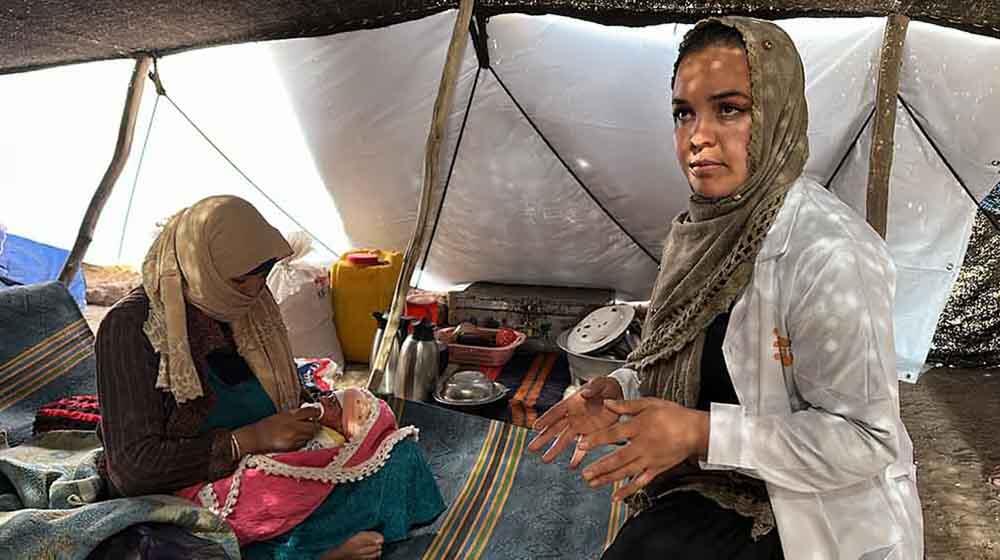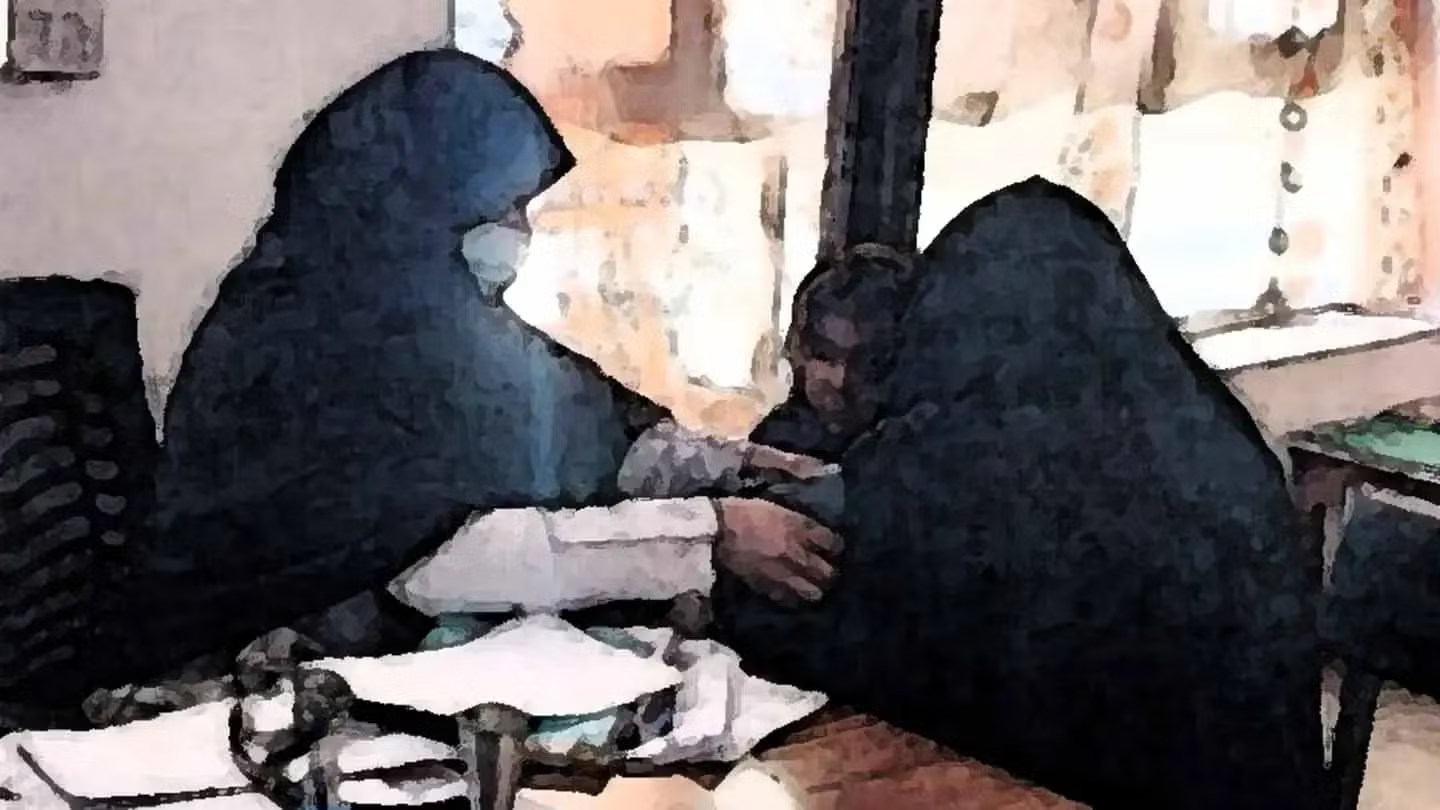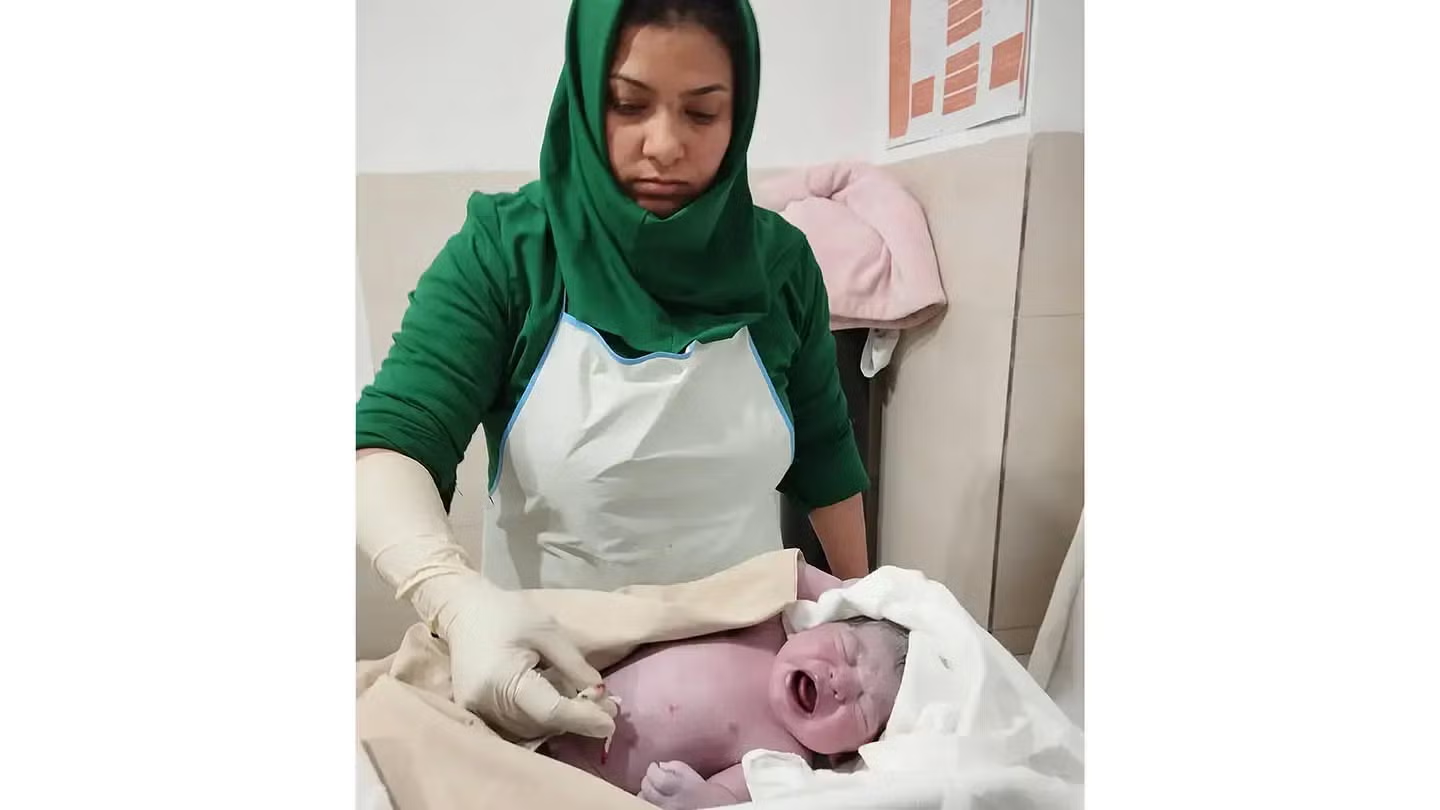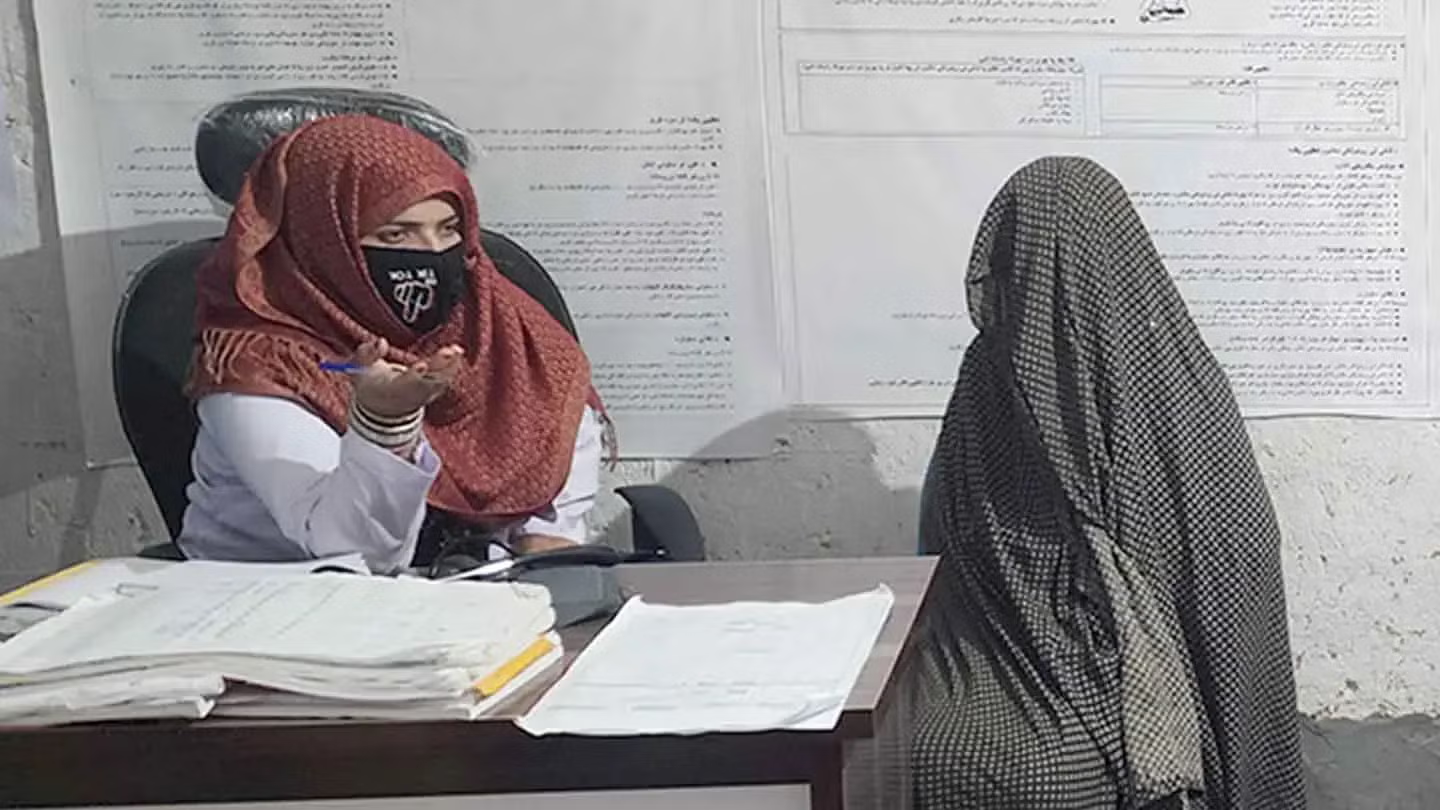ZINDAJAN, Afghanistan – Early in the morning on 15 October, 20-year-old Hanifa felt them: The contractions that signaled her baby was on its way.
The timing was less than ideal. Just one week prior, a 6.3-magnitude earthquake had rocked Herat Province, Afghanistan, reducing Hanifa’s home and thousands of others to rubble. Displaced and sheltering in a canvas tent, Hanifa felt lost and hopeless.
“I thought, 'How can a mother bring a child into this chaos?'” she said. “But then Rahna, the midwife, arrived like an angel.”
Childbirth during displacement can be dangerous. Pregnant women who have been forced from their homes are more vulnerable to violence, malnutrition and disease. And they are more likely to give birth without the support of a skilled healthcare worker, raising the risk of life-threatening complications.
Fortunately for Hanifa, Rahna, a UNFPA-supported midwife, was on hand to help guide her through labour and bring her baby safely into the world. “She held my hand, and her words were like a soothing balm for my fears,” Hanifa said. “I went from panic to comfort in moments."
In the aftermath of catastrophe, addressing the sexual and reproductive health needs of women and girls often takes a backseat to other urgent humanitarian priorities.
Midwives are critical to combating these challenges. They can cover about 90 per cent of the global need for interventions across sexual, reproductive, maternal, newborn and adolescent health. UNFPA trains and supports midwives around the globe and, when necessary, dispatches them to emergencies. Rahna is one of the midwives mobilized to support UNFPA’s mobile health teams, which have been offering medical care, psychosocial support, and reproductive health services to those affected by the quake.
Healthcare workers like Rahna, though, provide more than specialized care. Hanifa described the midwife as solace personified: “Hope arrived in the form of Rahna.”
Hanifa’s labour lasted six hours, and during that time, her blood pressure spiked. High blood pressure is a leading cause of maternal mortality, despite being largely preventable and treatable.
Quality health care is essential to navigating this danger, and fortunately, Rahna’s skilled support enabled both Hanifa and her newborn to survive.
"It was a challenging situation, but when I saw the relief on Hanifa's face as she held her baby, I felt a profound sense of pride,” Rahna said. “I was able to save not just one life but two – the baby and Hanifa.
Hanifa named her baby boy Ahmad. “In the midst of disaster, we brought a glimmer of hope, and that's a feeling I'll carry with me forever," Rahna said.
(Text and photo by Ahmad Jamshid Qazizadah)





